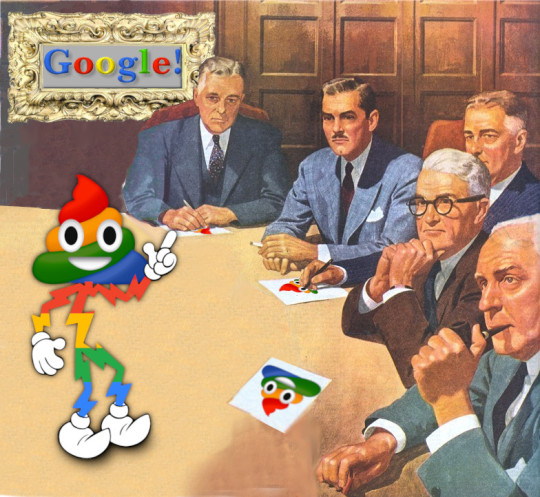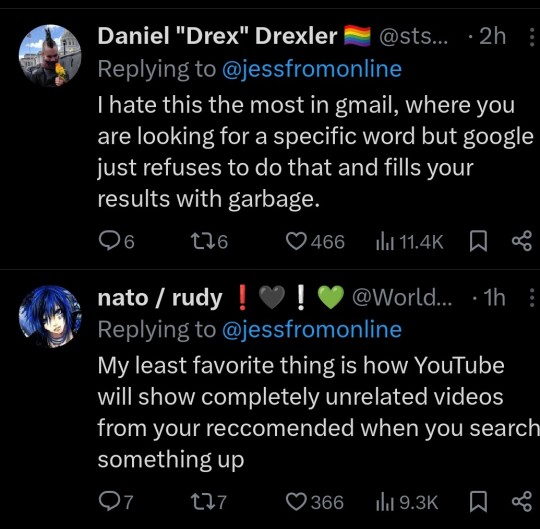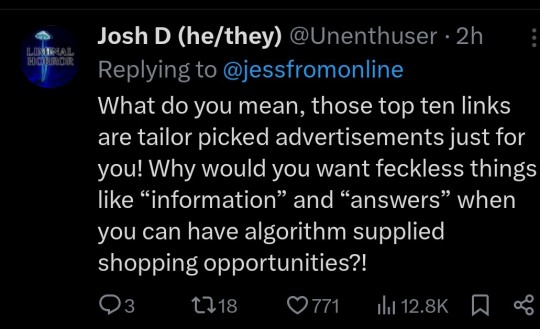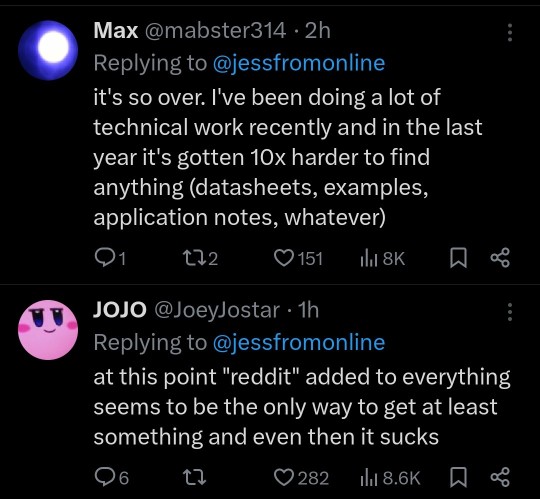#search_engines
Explore tagged Tumblr posts
Text


#rohini_digital_marketing_consultant#rohini_digital_marketing_services#search_engines#social_media#online_promotion#campaigns#coimbatore#gandhipuram
0 notes
Text
The unknown history of the Vietnam War: American forces lost because of the terrible traps! Brutal all barbarism.
One of the most unique aspects of the war was the role of women. Women played a vital role in the Viet Cong, serving as soldiers, spies, and nurses. They also played a key role in the anti-war movement in the United States.
Another unique aspect of the Vietnam War was the use of guerrilla warfare by the Viet Cong. The Viet Cong were able to effectively defeat the US military, which was far superior in terms of firepower and technology. They did this by using guerrilla tactics, such as ambushes, sabotage, and land mines.
Finally, the Vietnam War was one... Know More...
youtube
#HistoryofVietnamWar#VietnamWar#VietnamWarTraps#youtube#bangladesh#foryopage#tumbirfyp#tumblog#foryou#search_engine#search engine#Youtube
6 notes
·
View notes
Text
"The Bear's Baffling Behavior That Left Everyone Stunned"

Introduction
In the heart of the wilderness, a remarkable and bewildering story unfolded, captivating the hearg Behavior That Left Everyone Stunned" is an extraordinary account of a wild bear whose actions defied logic and left experts and onlookers alike utterly flabbergasted. This article delves into the enigmatic world of this bear and explores the fascinating twists and turns of its behavior, revealing the mysteries of nature in all their glory.
A Puzzling Beginning
Our story commences in a pristine forest, where the enigmatic bear embarked on a series of bewildering antics that sent shockwaves through the wildlife community. From inexplicable interactions with fellow animals to a curious choice of territory, the bear's actions raised more questions than answers. Wildlife enthusiasts, scientists, and trackers were left perplexed, eager to unravel the secrets behind this bear's behavior.
The Unraveling Mystery
As the narrative unfolds, we witness the tireless efforts of experts attempting to decode the bear's strange conduct. Countless hours of observation, research, and analysis were poured into understanding this enigma of the wild. Could there be a hidden motive propelling these antics, or was this a case of a bear boldly rewriting the rulebook of nature?
Lessons from the Wild
Beyond the bewilderment, the bear's behavior offered profound insights into the intricacies of the natural world. It serves as a reminder that there are still uncharted territories in our understanding of wildlife, reminding us that nature is infinitely complex and capable of surprising us at every turn.
Conservation Implications
The story of the bear's baffling behavior has significant implications for conservation efforts. It underscores the importance of preserving and protecting the habitats of these majestic creatures, allowing them to thrive and continue their vital roles as keystone species in their ecosystems.
Conclusion
"The Bear's Baffling Behavior That Left Everyone Stunned" is a captivating journey into the heart of the wilderness, where the mysteries of the natural world unfold before our eyes. It showcases the boundless wonders of nature and the enduring intrigue that lies within even the most familiar landscapes. This tale reminds us that, in our quest to understand the world around us, there is always room for astonishment, wonder, and the thrill of the unknown... Read More
2 notes
·
View notes
Link
This bug makes the devices very difficult to use Google has acknowledged the problem and is now studying a glitch in Android 14, which, according to user reviews, has wreaked havoc on branded Pixel smartphones. [caption id="attachment_76815" align="aligncenter" width="780"] Google[/caption] Android 14 crash 'wreaks havoc' on Pixel smartphones, Google investigates The issue affects users who have multiple profiles. Many Pixel users complain that the main account, when set up, cannot access the storage, while the secondary account can. Problems range from missing apps to constant crashes and completely locking out the internal memory of one of the device's user accounts. A Google spokesperson said the team is "working diligently to fix" the glitch. The first complaints began to come mainly from Pixel 6 owners who encountered the problem when the update began to roll out. Initially, Google ignored the problem and it quickly began to spread to other Pixel series smartphones. There are now almost half a thousand messages in Google's problem-tracking system. Moreover, some users insert log files or screenshots. Others said they couldn't provide screenshots because the phone said it didn't have free space to save them. Some have compared the experience to being infected with ransomware.
#digital_technology#Google#Google_products#Google_services#Google_software#information_technology#internet_services#online_search#Online_technology#search_engine#Tech_Innovations#technology_company#Web_Services
0 notes
Text
The most dangerous tribe in the world No one comes back alive from here

Do you want to see the scariest tribe in the world? Although there are hundreds of nationalities in this world of 7.8 billion people, more than 5,000 tribes have been living there since before the concept of country or continent was born. These tribes have different culture, different language, different social system. While each tribe carries some strange or unknown reformation, many tribes are known solely for their ferocity or ruthlessness. Not only are they brutal in themselves, but their brutality has sometimes been inflicted on common people. Read More...
#পৃথিবীর_সবচেয়ে_ভয়ঙ্কর_উপজাতি#আদিবাসী#সার্চ_ইঞ্জিন - Search_Engine#youtube#tumbir video#tumbir#foryou
1 note
·
View note
Text
The specific process by which Google enshittified its search

I'm touring my new, nationally bestselling novel The Bezzle! Catch me SATURDAY (Apr 27) in MARIN COUNTY, then Winnipeg (May 2), Calgary (May 3), Vancouver (May 4), and beyond!

All digital businesses have the technical capacity to enshittify: the ability to change the underlying functions of the business from moment to moment and user to user, allowing for the rapid transfer of value between business customers, end users and shareholders:
https://pluralistic.net/2023/02/19/twiddler/
If you'd like an essay-formatted version of this thread to read or share, here's a link to it on pluralistic.net, my surveillance-free, ad-free, tracker-free blog:
https://pluralistic.net/2024/04/24/naming-names/#prabhakar-raghavan
Which raises an important question: why do companies enshittify at a specific moment, after refraining from enshittifying before? After all, a company always has the potential to benefit by treating its business customers and end users worse, by giving them a worse deal. If you charge more for your product and pay your suppliers less, that leaves more money on the table for your investors.
Of course, it's not that simple. While cheating, price-gouging, and degrading your product can produce gains, these tactics also threaten losses. You might lose customers to a rival, or get punished by a regulator, or face mass resignations from your employees who really believe in your product.
Companies choose not to enshittify their products…until they choose to do so. One theory to explain this is that companies are engaged in a process of continuous assessment, gathering data about their competitive risks, their regulators' mettle, their employees' boldness. When these assessments indicate that the conditions are favorable to enshittification, the CEO walks over to the big "enshittification" lever on the wall and yanks it all the way to MAX.
Some companies have certainly done this – and paid the price. Think of Myspace or Yahoo: companies that made themselves worse by reducing quality and gouging on price (be it measured in dollars or attention – that is, ads) before sinking into obscure senescence. These companies made a bet that they could get richer while getting worse, and they were wrong, and they lost out.
But this model doesn't explain the Great Enshittening, in which all the tech companies are enshittifying at the same time. Maybe all these companies are subscribing to the same business newsletter (or, more likely, buying advice from the same management consultancy) (cough McKinsey cough) that is a kind of industry-wide starter pistol for enshittification.
I think it's something else. I think the main job of a CEO is to show up for work every morning and yank on the enshittification lever as hard as you can, in hopes that you can eke out some incremental gains in your company's cost-basis and/or income by shifting value away from your suppliers and customers to yourself.
We get good digital services when the enshittification lever doesn't budge – when it is constrained: by competition, by regulation, by interoperable mods and hacks that undo enshittification (like alternative clients and ad-blockers) and by workers who have bargaining power thanks to a tight labor market or a powerful union:
https://pluralistic.net/2023/11/09/lead-me-not-into-temptation/#chamberlain
When Google ordered its staff to build a secret Chinese search engine that would censor search results and rat out dissidents to the Chinese secret police, googlers revolted and refused, and the project died:
https://en.wikipedia.org/wiki/Dragonfly_(search_engine)
When Google tried to win a US government contract to build AI for drones used to target and murder civilians far from the battlefield, googlers revolted and refused, and the project died:
https://www.nytimes.com/2018/06/01/technology/google-pentagon-project-maven.html
What's happened since – what's behind all the tech companies enshittifying all at once – is that tech worker power has been smashed, especially at Google, where 12,000 workers were fired just months after a $80b stock buyback that would have paid their wages for the next 27 years. Likewise, competition has receded from tech bosses' worries, thanks to lax antitrust enforcement that saw most credible competitors merged into behemoths, or neutralized with predatory pricing schemes. Lax enforcement of other policies – privacy, labor and consumer protection – loosened up the enshittification lever even more. And the expansion of IP rights, which criminalize most kinds of reverse engineering and aftermarket modification, means that interoperability no longer applies friction to the enshittification lever.
Now that every tech boss has an enshittification lever that moves very freely, they can show up for work, yank the enshittification lever, and it goes all the way to MAX. When googlers protested the company's complicity in the genocide in Gaza, Google didn't kill the project – it mass-fired the workers:
https://medium.com/@notechforapartheid/statement-from-google-workers-with-the-no-tech-for-apartheid-campaign-on-googles-indiscriminate-28ba4c9b7ce8
Enshittification is a macroeconomic phenomenon, determined by the regulatory environment for competition, privacy, labor, consumer protection and IP. But enshittification is also a microeconomic phenomenon, the result of innumerable boardroom and product-planning fights within companies in which would-be enshittifiers try to do things that make the company's products and services shittier wrestle with rivals who want to keep things as they are, or make them better, whether out of principle or fear of the consequences.
Those microeconomic wrestling-matches are where we find enshittification's heroes and villains – the people who fight for the user or stand up for a fair deal, versus the people who want to cheat and wreck to make things better for the company and win bonuses and promotions for themselves:
https://locusmag.com/2023/11/commentary-by-cory-doctorow-dont-be-evil/
These microeconomic struggles are usually obscure, because companies are secretive institutions and our glimpses into their deliberations are normally limited to the odd leaked memo, whistleblower tell-all, or spectacular worker revolt. But when a company gets dragged into court, a new window opens into the company's internal operations. That's especially true when the plaintiff is the US government.
Which brings me back to Google, the poster-child for enshittification, a company that revolutionized the internet a quarter of a century ago with a search-engine that was so good that it felt like magic, which has decayed so badly and so rapidly that whole sections of the internet are disappearing from view for the 90% of users who rely on the search engine as their gateway to the internet.
Google is being sued by the DOJ's Antitrust Division, and that means we are getting a very deep look into the company, as its internal emails and memos come to light:
https://pluralistic.net/2023/10/03/not-feeling-lucky/#fundamental-laws-of-economics
Google is a tech company, and tech companies have literary cultures – they run on email and other forms of written communication, even for casual speech, which is more likely to take place in a chat program than at a water-cooler. This means that tech companies have giant databases full of confessions to every crime they've ever committed:
https://pluralistic.net/2023/09/03/big-tech-cant-stop-telling-on-itself/
Large pieces of Google's database-of-crimes are now on display – so much, in fact, that it's hard for anyone to parse through it all and understand what it means. But some people are trying, and coming up with gold. One of those successful prospectors is Ed Zitron, who has produced a staggering account of the precise moment at which Google search tipped over into enshittification, which names the executives at the very heart of the rot:
https://www.wheresyoured.at/the-men-who-killed-google/
Zitron tells the story of a boardroom struggle over search quality, in which Ben Gomes – a long-tenured googler who helped define the company during its best years – lost a fight with Prabhakar Raghavan, a computer scientist turned manager whose tactic for increasing the number of search queries (and thus the number of ads the company could show to searchers) was to decrease the quality of search. That way, searchers would have to spend more time on Google before they found what they were looking for.
Zitron contrasts the background of these two figures. Gomes, the hero, worked at Google for 19 years, solving fantastically hard technical scaling problems and eventually becoming the company's "search czar." Raghavan, the villain, "failed upwards" through his career, including a stint as Yahoo's head of search from 2005-12, a presiding over the collapse of Yahoo's search business. Under Raghavan's leadership, Yahoo's search market-share fell from 30.4% to 14%, and in the end, Yahoo jettisoned its search altogether and replaced it with Bing.
For Zitron, the memos show how Raghavan engineered the ouster of Gomes, with help from the company CEO, the ex-McKinseyite Sundar Pichai. It was a triumph for enshittification, a deliberate decision to make the product worse in order to make it more profitable, under the (correct) belief that the company's exclusivity deals to provide search everywhere from Iphones and Samsungs to Mozilla would mean that the business would face no consequences for doing so.
It a picture of a company that isn't just too big to fail – it's (as FTC Chair Lina Khan put it on The Daily Show) too big to care:
https://www.youtube.com/watch?v=oaDTiWaYfcM
Zitron's done excellent sleuthing through the court exhibits here, and his writeup is incandescently brilliant. But there's one point I quibble with him on. Zitron writes that "It’s because the people running the tech industry are no longer those that built it."
I think that gets it backwards. I think that there were always enshittifiers in the C-suites of these companies. When Page and Brin brought in the war criminal Eric Schmidt to run the company, he surely started every day with a ritual, ferocious tug at that enshittification lever. The difference wasn't who was in the C-suite – the difference was how freely the lever moved.
On Saturday, I wrote:
The platforms used to treat us well and now treat us badly. That's not because they were setting a patient trap, luring us in with good treatment in the expectation of locking us in and turning on us. Tech bosses do not have the executive function to lie in wait for years and years.
https://pluralistic.net/2024/04/22/kargo-kult-kaptialism/#dont-buy-it
Someone on Hacker News called that "silly," adding that "tech bosses do in fact have the executive function to lie in wait for years and years. That's literally the business model of most startups":
https://news.ycombinator.com/item?id=40114339
That's not quite right, though. The business-model of the startup is to yank on the enshittification lever every day. Tech bosses don't lie in wait for the perfect moment to claw away all the value from their employees, users, business customers, and suppliers – they're always trying to get that value. It's only when they become too big to care that they succeed. That's the definition of being too big to care.
In antitrust circles, they sometimes say that "the process is the punishment." No matter what happens to the DOJ's case against Google, its internal workers have been made visible to the public. The secrecy surrounding the Google trial when it was underway meant that a lot of this stuff flew under the radar when it first appeared. But as Zitron's work shows, there is plenty of treasure to be found in that trove of documents that is now permanently in the public domain.
When future scholars study the enshittocene, they will look to accounts like Zitron's to mark the turning points from the old, good internet to the enshitternet. Let's hope those future scholars have a new, good internet on which to publish their findings.

If you'd like an essay-formatted version of this post to read or share, here's a link to it on pluralistic.net, my surveillance-free, ad-free, tracker-free blog:
https://pluralistic.net/2024/04/24/naming-names/#prabhakar-raghavan
#pluralistic#ed zitron#google#microincentives#constraints#enshittification#rot economy#platform decay#search#ben gomes#code yellow#mckinsey#hacking engagement#Prabhakar Raghavan#yahoo#doj#antitrust#trustbusting
511 notes
·
View notes
Text
elmentős
#search_engines #unshittify_the_net




88K notes
·
View notes
Text
Post 11 - Distribution
Pandora employs a multi-channel retail strategy that includes both direct-to-consumer and wholesale distribution. They operate their own stores, as well as sell through authorized retailers and online. Marketing terms to describe their distribution include direct marketing, wholesale distribution, multi-channel strategy, offline retail, and online retail.

Here's a more detailed look at Pandora's retail strategy:
Direct-to-Consumer:
Pandora operates its own physical stores (concept stores) and online stores, allowing them to directly sell to customers and maintain brand control.
Wholesale Distribution:
They also sell to authorized retailers through franchise agreements and other wholesale arrangements, reaching a wider audience.
Multi-Channel Approach:
This strategy involves selling products through both physical stores and online platforms, providing customers with flexibility and convenience.
Offline Retail:
Pandora's physical stores are a key part of their retail strategy, providing a physical space for customers to browse, interact with the jewelry, and build brand loyalty.
Online Retail:
Pandora's e-commerce platform allows them to reach a wider audience and provide a more convenient shopping experience, especially for customers who prefer online shopping.
Pandora employs a distribution model that's neither fully intensive nor exclusively, but rather falls in between. While they have a significant global presence and operate many of their own retail stores, they also utilize a network of independent retailers. This suggests a combination of selective distribution with a focus on key locations and strategic partnerships.

https://us.pandora.net/en/explore-the-brand/about-pandora.html?c_priceTestGroup=experienceTest_segmentA&site=us&search_engine=salesforce#:~:text=Pandora%20operates%20and%20manages%20a%20vertically%20integrated,of%20sale%2C%20including%20around%20900%20concept%20stores.
https://us.pandora.net/en/explore-the-brand/brand-protection.html#:~:text=Purchase%20your%20Pandora%20jewellery%20from%20authorised%20retailers,you%20can%20be%20assured%20they%20are%20authentic.
0 notes
Text
Explore a world of #search possibilities beyond #Google with these 10 compelling alternatives, broadening your #search_engine horizons. Uncover diverse perspectives and harness the power of choice as you embark on a journey to discover new and efficient ways to find information online. Visit the #blog below for more detailed info
0 notes
Text
Search Engine Pink Pages! city aims to hold all the websites in existence, make sure your listing is updated and available so people can find it. You can add description, tags, and make the link clickable. General users can donate to improve Pink Pages! search engine.
1 note
·
View note
Text
"The Terrifying Titan: Prehistoric Crocodile, 20 Feet Long and 10 Tons in Weight"

Unveiling the Enigma of Crocodiles: Earth's Ancient and Formidable Giants" Introduction: Crocodiles, those formidable reptilian creatures, have held a mystique that has captivated human curiosity for centuries. Often lurking beneath the surface, they are both awe-inspiring and enigmatic. These remarkable animals, the largest among reptiles, have carved out a niche in our planet's history that spans a staggering 200 million years. In this article, we delve into the intriguing world of crocodiles, focusing on one particularly fearsome predator measuring an impressive 20 feet in length. The Origins of Crocodiles: Crocodiles, belonging to the order Crocodylia, are an ancient group of reptiles that can trace their lineage back to the Mesozoic Era. Read More...
#search_engine#youtube#bangladesh#tumbirfyp#foryopage#foryouvideo#red white and royal blue#welcome home#foryou#crocodile#truestory#reality#tumblog
4 notes
·
View notes
Text
"To buy your dream horse, your bank account can go empty"
Horses are majestic creatures and that's why they are a dream for many. However, buying a horse can be an extravagant expense, something not feasible for an ordinary person's budget. Find out more...
youtube
0 notes
Link
Microsoft Edge offers three levels of tracking protection Google some time ago began blocking the viewing of videos on the YouTube platform for users who use ad blockers. The fight against ad blockers has led to unexpected consequences. More and more users of the Microsoft Edge browser have begun to complain about warnings and pop-up messages blocking YouTube playback. [caption id="attachment_64938" align="aligncenter" width="780"] Windows 11[/caption] The problem was brought to the attention of the WindowsLatest thematic resource. As the study showed, the problem was one of the tracking protection modes implemented in Microsoft Edge. The browser has three levels of tracking protection: Basic, Balanced (default), and Strict. In "strict" mode, Microsoft Edge applies additional protections to all sites the user visits. This includes limiting tracking capabilities for companies like Google, which could impact content and advertising. Google blocks some Windows 11 users from viewing YouTube videos. [caption id="attachment_64939" align="aligncenter" width="780"] Windows 11[/caption] Google treats Microsoft Edge's "strict" mode as an ad blocker, WindowsLatest discovered. As a result, users who installed this level of protection were faced with all measures to combat ad blockers, including blocking video viewing on YouTube. Unfortunately, for now, the only way to deal with this problem is to disable strict mode. After switching to "balanced" mode, YouTube allows you to resume playing the video. Of course, we are only talking about users with free access to YouTube. Users of the paid YouTube Premium subscription do not encounter such problems.
#Google#Google_achievements.#Google_advancements#Google_developments#Google_Hardware#Google_Inc.#Google_innovations#Google_news#Google_products#Google_services#Google_software#Google_technology#Internet_giant#search_engine#technology_company
0 notes
Photo

Digital Corsel is an Online Marketing Agency, based in Bangalore, India. We specialize in helping clients nationwide with the digital marketing effort. We are The Best Digital Marketing Company in Bangalore. We assist your business to grow by showcasing digital marketing solutions to reach and change over leads into customers and retain them.
1 note
·
View note
Photo

Find Top Sports club in Chennai, Fitness Centers | reachEC Join Now: https://bit.ly/2Hnatm5 Get phone numbers, address, best deals for list of Sports Club in Chennai at reachEC India. . .
#stay_fit#sports#clubs#healthy_life#signupfollow#Business#ReachEC_Services#ReachEC_website#DigitalMarketing#digital_india#search_engine
1 note
·
View note
Link
Databases are often the most significant performance bottleneck in an application. They are also hard to migrate from once being used in production, so making the right choice for your application’s database is crucial. This article will try to simplify things for you.
0 notes